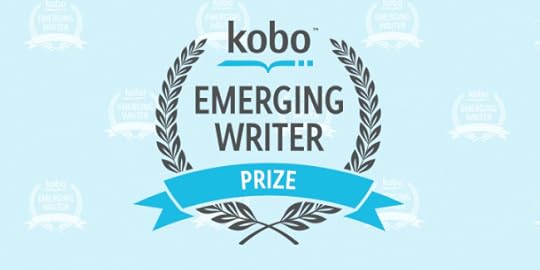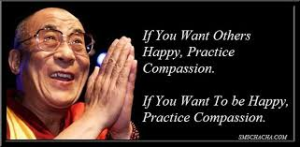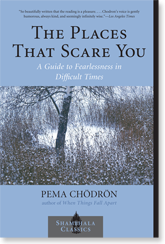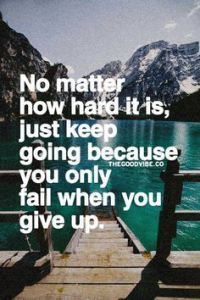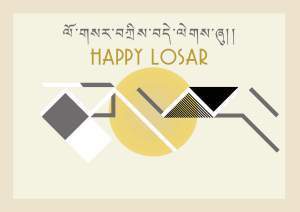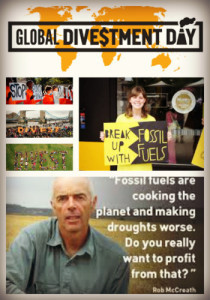Sally Ember's Blog, page 80
February 20, 2015
“Top 10 Scientific Benefits of Compassion” for #1000Speak for Compassion day
“Top 10 Scientific Benefits of Compassion” is a reblog from Emma Seppala from December, 2013, that is still very timely.
http://www.emmaseppala.com/top-10-scientific-benefits-of-compassion-infographic/
Excellent! Everyone and the planet and all beings benefit!
 Originally posted on Kindness Blog:
Originally posted on Kindness Blog:
To view correctly, please click the image and then click again to magnify!
Filed under: Blogging and others' content, Buddhism Tagged: #1000Speak, Buddhism, Buddhist, compassion, meditation

February 19, 2015
Kobo Launches Emerging Writer Prize to Celebrate Debut Works by Canadian Authors
#Canadian #debut #authors #contest
 Originally posted on Kobo Writing Life:
Originally posted on Kobo Writing Life:
Monetary prize and marketing support awarded for books in three categories: Literary Fiction, Genre Fiction, and Non-Fiction
Did you publish your first book in 2014? Do you have a Canadian passport? If so, you may want to consider entering Kobo’s first annual Emerging Writer Award of Excellence.
Created for debut authors in three categories: Literary Fiction, Genre Fiction (beginning with Mystery, with a different genre showcased each year), and Non-Fiction, each winning author will be awarded a $10,000 CAD cash prize and promotional, marketing, and communications support; winners will be announced in June.
View original 179 more words
Filed under: Writing

“Be A Part Of A Movement: #1000Speak for #Compassion” 2/20/15
from the organizers:
“Be A Part Of A Movement: #1000Speak for #Compassion” 2/20/15
“How cool would it be if we could get 1000 bloggers on the same day to write posts about compassion, kindness, support, caring for others, non-judgement etc.?
“We could call it 1000 Voices For Compassion.
“Who’s in?
“When: February 20, 2015
“How: Write a post TODAY on your blog or Facebook or Google + or LinkedIn or Instagram or any other social media you use about #compassion. What does it mean to you? How has it affected you? How can we bring more of it to those who need it?
“Really, there are no rules, just as long as it’s about compassion.”
From the Facebook group devoted to this event:
Let’s get 1000 bloggers to write posts about compassion, kindness, support, caring for others, non-judgment, care for the environment etc, and ALL PUBLISH ON THE SAME DAY (Feb 20th) to flood the Blogosphere with GOOD! Use the hashtag #1000Speak to promote this event.
I am one of the more than 1000, today.
My post about compassion:
As many of you know, I am a Buddhist (in this and many lifetimes, apparently) in the Tibetan Vajrayana Nyingma tradition. During the many times I’ve listened to teachers speak and I have read the writings of others on topic of compassion, the definition of compassion is what stays with me consistently. According to Buddhism, compassion arises spontaneously within us and moves us to do our best to alleviate the suffering of others.
For me, the companion to this definition is the Buddhist view of love. In the Buddhists’ view, when we feel authentic love, we are moved to speak, think and act in ways that would be most likely to bring about the circumstances that generate happiness for the object of our love and do our best to prevent their being unhappy, even when it means we put them first, above ourselves.
Furthermore, His Holiness the 14th Dalai Lama has been quoted repeatedly, as other teachers before and around him have, also, as giving advice along these lines: “If you want to be happy, focus on helping others be happy.”
Add in the multiple lifetimes component, or karma, and we hear this advice repeatedly throughout Buddhist teachings: “If you want to discover what your past lifetimes were like, look at your present behaviors, thoughts and words. If you want to plant the seeds of your future happiness, look at your present behaviors, thoughts and words.”
NOW is what matters most.
Then, there are the instructions and advice for daily living that arise from teachings on The 6 Paramitas (usually translated as “6 Perfections”), such as Pema Chödrön, an American woman who became one of the first Western Tibetan Buddhist nuns, teachers and authors, spoke about in The Places that Scare You, page 98
THE SIX WAYS OF COMPASSIONATE LIVING
Generosity. Giving as a path of learning to let go.
Discipline. Training in not caushing harm in a way that is daring and flexible.
Patience. Training in abiding with the restlessness of our energy and letting things evolve at their own speed. If waking up takes forever, still we go moment by moment, giving up all hope of fruition and enjoying the process.
Joyful enthusiasm. Letting go of our perfectionism and connecting with the living quality of every moment.
Meditation. Training in coming back to being right here with gentleness and precision.
Prajna (or transcendent wisdom). Cultivating an open, inquiring mind.
Putting that all together has given me a great blueprint for my life. I base my minute-by-minute and larger decisions on determinations of how I can be most effective in helping others be happy, especially those I love, by practicing the 6 Paramitas. I combine that with seeking what I am able to accomplish that might help alleviate others’ suffering, even that of strangers or beings I do not know or come into contact with in my current circumstances.
With those aims in my heart, I make it my daily spiritual practice to try to live my life imbued with compassion and love for others.
I frequently fail.
I am impatient. I am selfish. I get angry. I am self-centered. I forget my aims. I lose sight of my heart-centered, larger goals by getting trapped in minutiae and short-term satisfaction. I want what I want and too often I see everything as a zero-sum game I am determined to win. I have been trained in these values, these behaviors and these perspectives: they are second-nature to me.
That’s the reason it’s called spiritual practice: we have to keep trying, keep re-dedicating ourselves to the attempt, moment by moment, day by day. These attitudes do not come naturally to me; I was not provided with a lot of role models on how great it is to be kind, to be generous, to be diligent, to be focused on others’ happiness, to put myself second. I have to strive more sometimes than others, but I usually have to try. Hard.
It is difficult. Scary. Frustrating. Discouraging.
But, I am resolute. Committed. Determined. I have taken vows to this effect, starting with the most basic vow that all Buddhists take, the vow not to harm.
My best moments are characterized by a look back, comparing it to now, and noticing that I haven’t had to put in any effort to feel and act in compassionate ways. When these urges arise spontaneously, I am even more joyful. I know I have had a successful moment when the love I feel for someone really does inspire me to be unselfish and put them first.
When embodying the 6 Paramitas as best I can is making others as well as ME happy, it’s a good moment, a good hour, a good day, a good life.
Excellent moments are surrounded by many in which I am ordinary, selfish and ungenerous.
I re-dedicate myself and continue to practice.
Some days, some moments, my compassion and love practices seem to have taken root.
I hope yours do, also.
Participate in #1000Speak by following this link and the links within the following post.
http://driftingthrough.com/2015/01/16/be-a-part-of-a-movement-1000speak/
Very cool #Author moment report: Last month, as I was writing this blog post and looking for an image via Google’s free images, I put in: “‘Keep Going’ Buddhist,” and what came up?
The book cover for my own book, Volume I, The Spanners Series, This Changes Everything!!! It was pretty far down, but it was there!
It is part of my practice to write Buddhist-themed books with practicing Buddhists as characters, but how did Google know that? Wow!
Filed under: Life lessons, Opinions, Support for Good Causes Tagged: compassion, Political movements, social change, Social movements

February 17, 2015
Happy #Tibetan New Year (#Losar)!
Happy #Tibetan New Year (#Losar)!
Feb 18-19, year 2142, of the Female Wood Sheep/Goat: “Generosity, sustaining a strong and steady path toward goals, and keeping the peace are key qualities of Sheep Nature.”
“Challenges of Ram: locking horns, overly competitive, lawsuits, arguments, tempers flaring (your basic prickly behavior), making too many sacrifices, stubbornness and resistance.”
http://www.elephantjournal.com/2015/02/the-year-of-the-wood-sheep-an-astrological-map-of-the-year/
Filed under: Buddhism Tagged: Losar, Tibetan New Year

Does Fiction Matter? Fiction, Fantasy & Social Change
Best part of an excellent essay (loved the part about the “Radium Girls,” too; excellent analogy): “My bigger concern is that, when we package sociopathy as ‘romance’? Sadists as Alpha male heroes? That is a confusing message (and a dangerous one) for everyone, but most especially for those still forming opinions and identities. In fact, I probably would have had NO problem with FSoG had it been in the genre of psychological thriller or horror. But slap ‘ROMANCE’ on it? Whole ‘notha’ ballgame.”
I DID read ALL three 50 Shades books when they came out, just to see what all the fuss was about. It was as if I were watching a train wreck and could not look away. So, I know whereof I speak; I did review these pieces of junk: bad writing, ridiculous and insulting (to both males and females) characters, horrible plotting (what little there is of it), terrible underlying and overt messages.
Read Kristen’s post. She’s insightful and accurate.
 Originally posted on Kristen Lamb's Blog:
Originally posted on Kristen Lamb's Blog:
We had a very lively and interesting debate over the 50 Shades cultural “phenomena” on Friday. I’m deeply grateful for all those commenters who posted such thoughtful opinions, even those who didn’t agree with me. I actually am not afraid of people disagreeing with me and I have zero interest in my blog simply being an ideological echo chamber.
Yet, there are a few things I’ve “heard” in the comments or even on Facebook which leave me flummoxed and I believe these assertions call for a closer examination.
It’s ONLY a Story. It is FICTION. JUST a FANTASY.
One argument that baffled me was this idea that 50 Shades is just a book and only fantasy. I do not begrudge James her success nor am I lambasting anyone who likes the books. To each, his or her own. I never called for banning, burning or censoring.
Since I never read…
View original 2,003 more words
Filed under: Writing

Dun Writin’—Now Whut? – 42 Who, Whom, and other Word Misuses (A series by Susan Uttendorfsky – Owner of Adirondack Editing)
Grammar geeks unite! Write on!
 Originally posted on Chris The Story Reading Ape's Blog:
Originally posted on Chris The Story Reading Ape's Blog:

Who, Whom, and other Word Misuses
Erik (The Kid Who Reviews Books), a frequent visitor and commenter on The Story Reading Ape’s blog, requested a post discussing who and whom. Thanks for the suggestion, Erik, and if anyone else has any requests, please leave them in the comments!
Many writers struggle with when to use “who” and when to use “whom,” which are both pronouns. The technical explanation is that “who” is a subjective pronoun; it should be used to refer to the subject of a sentence. “Whom” is an objective pronoun; it should be used to refer to the object of a sentence.
But unless you like to diagram sentences in your sleep, that’s probably way too mechanical for you. A common helpful hint is:
If the pronoun can be replaced by “he” or “she,” then use “who.”
If the pronoun can be replaced by “him” or “her,” then…
View original 372 more words
Filed under: Writing

Pros and Cons of #Writers’ Critique Groups
Pros and Cons of #Writers’ Critique Groups
Reposting from one year ago, since it’s all still true and useful and I have new Followers/Readers
Everyone know the biggest drawback to #self-publishing is the isolation. Yes, every #author who doesn’t collaborate in their #writing writes alone. However, prior to the explosion in self-publishing, most books and ebooks that came to readers went through several other sets of eyes and had several editing and revision drafts done by others that helped polish and tighten the writing prior to publication.
Today more than ever before, pieces of writing from short stories, blogs and articles to full-length books, both nonfiction and fiction, are getting all the way to a reader with no other editor than the writer. This is not a great situation for most readers or writers.
Because many writers seek professional companionship and critiques as well as audiences for drafts and new ideas, writers’ groups have sprung up for many centuries, both formal and informal. These groups usually meet regularly. Size can vary from a pair to a large group of a dozen or more.
The activities in the group can include public readings and/or sharing of written material with participants’ immediate oral comments, pages returned with mark-ups and discussions of the shared pieces. Locations can vary and many are not available free, so some groups charge a fee or require members to pay dues to cover costs and perhaps invite a speaker/presenter to conduct a workshop or give a talk on occasion.
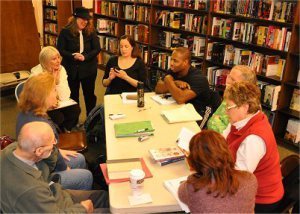
image from http://www.audreypress.com
Writers’ groups often appoint or hire a facilitator to guide and contribute to the critique. In better-run groups, this leader also keeps time and makes sure the comments are constructive and fair.
However, some groups are not well-run. The ground rules are not clear. Time is not equally distributed because it isn’t tracked well. Comments are not always fair and constructive. The facilitator dominates the discussion. Discussions veer away from the writing into personal stories and tangents introduced by participants. Suggestions are made that are not conducive to the writer’s intent, restrictions, topic, genre or format.
The diverse types of knowledge and experience among participants and in a leader of a writers’ group can be rich sources of varied perspectives OR generate too many irrelevant and unhelpful comments.
Pros and Cons of #Writers’ Critique Groups
CONS: An unskilled or distracted facilitator
— allows too many destructive comments to occur and this encourages more of the same
— allows the exposed author to experience immediate hurt feelings or bewilderment
— allows the writers to leave the critique session discouraged and confused by conflicting advice and too many off-topic remarks
— offers too many comments and dominates the discussion, shutting down, arguing with or interrupting other participants.
Writers in poorly-run groups can be led astray, which can causes them to depart from writing in their own voices and to lose sight of their personal or professional writing purposes. Many writers get discouraged or even “blocked” by attending poorly run writers’ groups.
BEWARE! Better to be isolated than to attend a group that operates negatively.
PROS: An skilled or focused facilitator
— leads a well-run group peopled by dedicated, experienced writers as well as “newbies” who each feels comfortable sharing and contributing
— trains and supports members to utilize the time effectively for receiving and offering constructive critiques, with newbies learning from old-timers the most effective methods for delivering and receiving criticism
— can foster an atmosphere of professional support that provides many gems of advice and new points of view for each member, even ones who don’t share in every meeting.
These productive sessions are wonderful catalysts for the writers who share drafts and any who attend. Authors in well-run writers’ groups return from each meeting with new vigor for editing, revising and creating new content.
Tips for Writers’ Groups:
1) Productive critique sessions are NOT riddled with “we loved it,” “it’s great,” and “keep going” with little or nothing else.
Critics must provide reasons for their opinions, especially when they’re positive, so that writers learn what we do well and can replicate our successes.
Critics must also defend their opinions that tell a writer to make changes by offering suggestions for revision or reasons for the ways the writing doesn’t “work” for the reader/listener.
2) Without the prompting of a skilled, focused leader, opinions may be offered with insufficient or no reasons given. Offering positive or negative opinions without rationales is not useful to a writer and should not be allowed.
3) Focus, clear ground rules (e.g., the requirement to give reasons for opinions, taking turns, sharing time equally) and giving both emotional and cognitive responses to a piece of writing are all parts of a productive writers’ group.
4) If YOUR writers’ group is not productive and positive enough, make an effort to change it or leave it. Start your own or join a different group.
5) Networking has never been easier. http://www.Meetup.com is a source of in-person writers’ groups. You can also check your local library’s, college’s, county’s/parish’s, state’s/province’s and country’s organizational listings for professional writers’ groups in your geographic area or genre. Check Facebook, LinkedIn, Google, and many writers’ associations and genre-centered groups online and around the world for possible writers’ groups, critique opportunities and other networking options. Some groups are now meeting online and virtually via SKYPE, iCHAT, Google Hangouts, etc.
If you are a writer seeking a group, I hope you find or start a great one!
Best of luck in your writing.
Filed under: Writing Tagged: authors, editing, Sally Ember, self-publishing, Writers, writers' critique groups, writers' groups, writing







February 15, 2015
2015 Paterson Prize for BFYP
YA, MG and mixed genre writers who write for youth: you have 1 month to prepare and submit your book for the 2015 #Paterson Prize.
 Originally posted on Writing and Illustrating:
Originally posted on Writing and Illustrating:
Did you have a book for Young People published in 2014? You have until March 15, 2015 to submit your book for consideration for The Paterson Prize For Books For Young People. Scroll down to see last years winning books. The ones I viewed were not poetry books, just in case you thought that due to it being sponsored by the Poetry Center.
 Here are the winners from last year.
Here are the winners from last year.
 Click Here for Application.
Click Here for Application.
Talk tomorrow,
Kathy
Filed under: Writing

Happy Birthday, Judy Blume!
One of the pioneer writers in the then-fledgling Young Adult genre is having a birthday. Thanks, Judy Blume, for so many great books for children and teens which adults also love.
 Originally posted on Rachel Carrera, Novelist:
Originally posted on Rachel Carrera, Novelist:
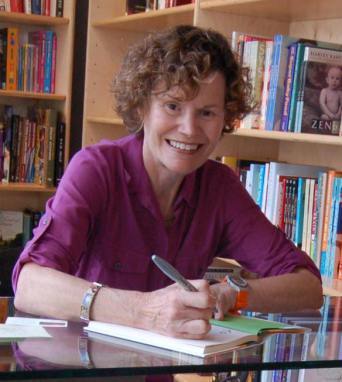 If you are a female human over the age of twelve, and you’ve never read Judy Blume’s Are You There God? It’s Me, Margaret, then you must look outside right now and see if in fact you are living under a rock.
If you are a female human over the age of twelve, and you’ve never read Judy Blume’s Are You There God? It’s Me, Margaret, then you must look outside right now and see if in fact you are living under a rock.
When I was a kid, I loved the school days when we got those magazines (which were more like four page flyers) where we could select books to purchase. (Weren’t those Weekly Readers or Scholastic Magazines?) I also loved when the public library’s bookmobile would come to school or when school would have a book fair. Okay, the truth is, because I went to Christian school, a lot of what we got to read was censored and had to be on “an approved Christian reading list,” so I missed out on a lot of my friends’ favorites such as Are You There God? It’s Me, Margaret. …
View original 253 more words
Filed under: Writing

The Viridescent Investor
Excellent post and great recommendations/inspiration to GO MORE #GREEN, especially in financial choices. I just joined a Credit Union: where do YOU #bank? Also, Inger (the post’s author) was my very engaging and LIVE guest on Episode 20 of *CHANGES*, which you can watch any time: https://www.youtube.com/playlist?list=PLPbfKicwk4dFdeVSAY1tfhtjaEY_clmfq
#Authors, especially those in sci-fi/speculative fiction and who blog, learn more about and get yourself on *CHANGES*, and #Readers, recommend an #author to be scheduled as a guest: *CHANGES* G+ HOA http://sallyember.com/changes-videoca...
 Originally posted on The Viridescent Consumer :
Originally posted on The Viridescent Consumer :
‘It makes no sense to invest in companies that undermine our future. We need an apartheid-style boycott to save the planet.’ Desmond Tutu, 2014
Global Divestment Day just took place, but what exactly is it? And what does it have to do with me?
If you are a person living on this planet, it has everything to do with you. From February 13-14, hundreds of events around the globe called on institutions to divest from fossil fuel companies. ‘Stop Funding Climate Chaos,’ was one of the slogans.’ ‘Break up with Fossil Fuel,’ was another. Investing in greener companies is a new and growing trend, and Global Divestment Day is part of that movement.
People from all walks of life came together to speak up against the climate crisis and offer greener solutions. My best friend’s father, an eager member of the grass-root movement Grandparents Climate Campaign, went on the radio and…
View original 247 more words
Filed under: Writing



